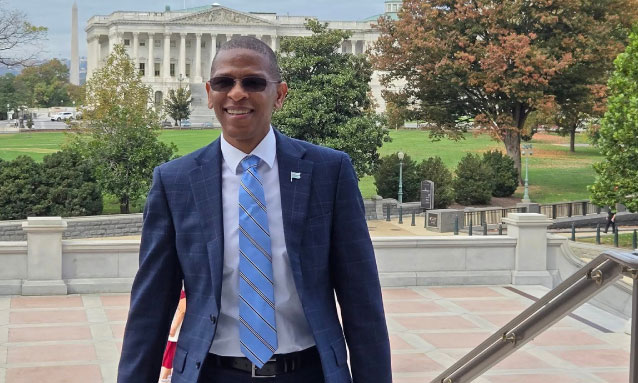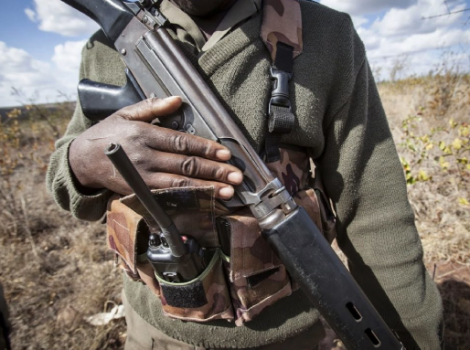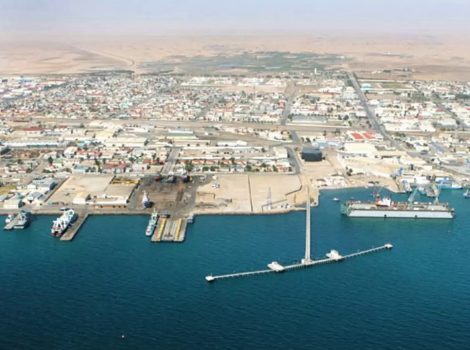
16 January 2025
Roughly the size of France, Botswana is home to only 2.7 million inhabitants—making it one of the most sparsely populated jurisdictions on Earth. But what it lacks in people, this landlocked African country more than makes up in diamonds.
In fact, only Russia outranks Botswana in terms of global diamond production. Last year, its mines extracted 25.1 million carats compared to Russia’s 37.3 million; other large diamond producers are Canada, DR Congo, Angola, South Africa, Zimbabwe and Namibia. Yet world diamond prices are falling, the victim of economic uncertainty in the world’s top two jewellery markets—the United States and China—as well as the growing popularity of cheaper synthetic or lab-grown diamonds.
That’s why one of Botswana’s most urgent priorities is to broaden its economic base beyond raw diamond mining, which generated nearly $3.3 billion last year, accounting for more than 70% of the country’s export earnings and almost 30% of GDP.
“We are far too dependent on a single commodity. But trying to diversify away from diamonds has been very difficult, especially with the dominance of big brother South Africa,” said Mpho Churchill Mophuting, Botswana’s new ambassador to the United States.
“The big problem is diamond prices. When they fall, it affects the entire economy – and prices have been falling ever since the pandemic.”
He added:
“We are doing everything possible to promote natural diamonds, and that’s where the big competition is. This is one huge challenge that I honestly believe needs to be tackled very effectively. Even though we lead Africa in diamonds, we can’t do it alone.”
Mophuting, who presented his credentials to President Biden last September, doesn’t resemble a typical ambassador. Neither a career diplomat nor a politician, Mophuting is a military man who’s spent 35 of his 55 years in uniform—and his idol is the late Colin Powell, a four-star general and secretary of state under President George W. Bush from 2001 to 2005.
“Gen. Powell was a soldier, a diplomat and, to some extent, a scholar. I would characterise myself the same way,” he told The Washington Diplomat in a recent interview.
“It’s very rare for an ambassador to have a military background, but that gives me an edge. Our leadership thought I’d be more of an asset outside the country.”
Born in Mahalapye—a small town on the edge of the Kalahari Desert, just north of the Tropic of Capricorn—Mophuting rose through the ranks of the Botswana Defence Forces (BDF). A graduate of Washington’s National Defense University, Mophuting also holds a bachelor’s degree in business and sports management from Florida’s Saint Leo University, and a master’s in international security and civil military relations from the Naval Postgraduate School in Monterey, Calif.
While with the BDF, Mophuting held various posts including permanent executive secretary of the East and Southern Africa Liaison Office of the International Military Sports Council, as well as adjunct lecturer at Washington DC’s Africa Center for Strategic Studies—where in August 2006 he became the first world recipient of the Gen. Carlton W. Fulford Award.
“Southern Africa is generally a very stable region, with the exception of one or two countries,” said Mophuting, adding that Botswana is attempting to help its neighbours “find peaceful resolutions” to ongoing internal conflicts in DR Congo and Mozambique.
In March 2020, Botswana’s president chose Mophuting to set up and head the COVID-19 National Emergency Operations Centre. Nearly a year later, he was appointed deputy commander of the BDF with the rank of major-general.
“For most of my career, I worked closely with the US military,” he said. “My role as an ambassador is to promote the national interests of Botswana and elevate our relationship with the United States.”
Known during colonial times as Bechuanaland, the country achieved independence from Britain in 1966 and is named after its majority ethnic group, the Tswana. Some 90% of its land area is covered by savanna, and Botswana is home to seven game reserves and three national parks. The country is home to hundreds of mammal species from aardwolves to zebras, boosting its popularity as a destination for safari tourism.
The Okavango Delta, which covers some 15,000 square kilometers, became a UNESCO World Heritage Site in 2014 and is a major jumping-off point for European, American and Asian tourists in search of the “Big Five”—elephant, buffalo, leopard, lion and rhinoceros.
“Since I came here five months ago, I’ve been using different platforms to make Botswana known, and to enhance our visibility,” Moputhing said.
“We have a very responsibly run government and leadership; that’s what makes us stand out. We are highly regarded for our very strong adherence to the rule of law.
We also have an impartial judicial system and a transparent legal framework that consistently ranks high among African nations.”
In 2023, the country’s economy grew by 2.7%, and its people enjoy an annual per-capita GDP of $7,250—high by regional standards. Last year, the nonprofit Mo Ibrahim Foundation ranked Botswana fifth out of 54 African countries in overall governance, behind only Seychelles, Mauritius, Cabo Verde and South Africa.
“We also have a very small population, which is both an advantage and also a disadvantage,” he said.
“If you have few people and a good economy, per-capita GDP is higher. The disadvantage is that when you have certain products but can’t market them, you have to look for overseas markets.
The economies of scale become a very big challenge. Most of what you produce has to be exported, and they have to be competitive. Otherwise, you’ll actually end up being a loser.”
Among priority sectors for investment are energy—particularly solar power and renewables —as well as information technology, agriculture and the financial sector. Also on the list: rare-earth minerals such as lithium, crucial for the batteries in electric vehicles.
Even within the diamond sector itself, said the ambassador, “we have not participated in the entire value chain, which includes cutting, polishing and design.”
One of Botswana’s persistent problems is its high unemployment rate, currently around 23%.
“It’s a worrisome figure. I think we really need to do something about it,” he said.
Another is HIV-AIDS. According to World Population Review, Botswana ranks third worldwide in HIV prevalence, with 19.7% of all adults infected with the virus that causes AIDS. Only the tiny countries of Eswatini (27.5%) and Lesotho (20.5%) exceeded Botswana in prevalence.
But that’s a lot better than it used to be, said Mophuting. AIDS, which in sub-Saharan Africa is spread primarily through heterosexual contact, was once so widespread that it forced Botswana’s life expectancy at birth down from 65 years in 1990 to 57 years by 1997 and a shocking 35 years by 2005.
“In the 1980s, we had a serious problem with HIV like the rest of Africa. We did everything possible and have made very significant strides in the health sector, particularly with the assistance of the United States,” he said, adding that 88% of HIV patients in Botswana now receive anti-retroviral treatments.
The ambassador credits PEPFAR (President’s Emergency Plan for AIDS Relief)—a legacy of the George W. Bush administration—for saving tens of thousands lives, adding that “we must give a lot of credit to both Democrats and Republicans for maintaining this programme.”
Source: https://washdiplomat.com/top-diamond-exporter-botswana-aims-to-diversify-its-economic-base/



